

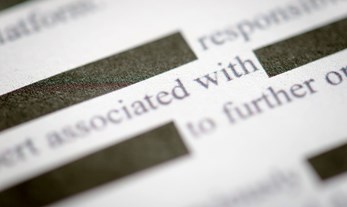
Enough with the Censorship?
Written By: Dr. Guy Lurie, Dr. Tehilla Shwartz Altshuler
Attempts by the Prime Minister to influence the Chief Censor may indicate a concerning erosion of the Military Censor’s independence and professionalism. Clearly, state secrets must be protected, especially during war, but there are better ways for this to be accomplished, more suited to a democratic state.

Press Release: Overwhelming Majority of Jewish and Arab Israelis: The Release of all Hostages is an Important Goal
When asked if these goals are important, 93% of Jewish Israelis and 66% of Arab Israelis say the goal of releasing hostages is an important goal. 90% of Jewish Israelis and 61% of Arab Israelis say the same of the goal of “restoring deterrence.”

Yohanan Plesner on Fox News | "It's the cause of Freedom"
Yohanan Plesner, president of IDI, spoke with BBC News' Ben Brown as wide-scale protests erupted in Israel following the harrowing murder of six Israeli hostages by

Yohanan Plesner, President of IDI on PBS | The War with Hamas
Yohanan Plesner, President of IDI on PBS Newshour: "In 2014, there was an attempt by Hamas to launch the exact same thing... just that time, they failed."

Slamming wartime misinformation while shaking hands with the man responsible for it
Written By: Dr. Tehilla Shwartz Altshuler
Israeli leaders are calling for the end of disinformation in the war while shaking hands with the man behind so much of it - Elon Musk. The current war has turned X into a human behavior experiment, and we are the lab rats.

The Worthy Clause in the Nation-State Law
Written By: Dr. Amir Fuchs
The Nation-State Law includes a clause that declares the state's obligation to care for all Jewish people and all Israeli citizens whenever they are in jeopardy due to either their Jewish identity or Israeli citizenship. This does not impose a legal obligation, but it does reflect this special value which must not be lost during this war.
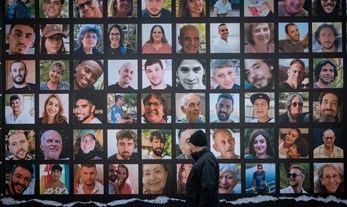
Overwhelming Majority of Jewish and Arab Israelis: The Release of all Hostages is a Goal of Importance
Written By: Prof. Tamar Hermann, Dr. Or Anabi
IDI's fifth War in Gaza survey finds that among Jewish Israelis, toppling Hamas and releasing the hostages are pivotal war-goals. The majority of respondents do not think that the government currently has a clear action for the day after the fighting ends, and there is rising support (56%) for an amendment to the Nation-State Law, to safeguard equality for non-Jewish citizens.

Amend the Nation-State Law. Now.
Written By: Prof. Suzie Navot
Israel's non-Jewish minorities—particularly those who are fighting and dying for the State of Israel—are worthy of appreciation and recognition, not separately, but as equals. The solution is to amend the Nation State Law, not to pass a new, separate basic law as is currently under consideration.
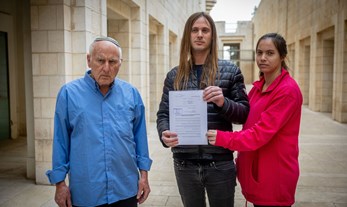
Does the High Court of Justice Intervene in Decisions to Release Prisoners?
Written By: Dr. Moran Kandelshtein-Haina
Appeals to the HCJ to intervene in decisions relating to the release of prisoners are fairly common, but the Court has repeatedly rejected these appeals, noting that on issues of national defense and diplomacy, the bounds for judicial oversight are particularly narrow.
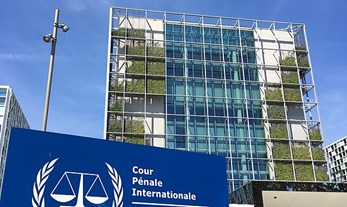
International Law "Made In Israel" Vs. International Law "Made For Israel"
Written By: Prof. Amichai Cohen, Prof. Yuval Shany
Tendentious interpretations of international law are not surprising considering the high emotions surrounding the long and bloody Israeli-Palestinian conflict. However, to serve its purpose guiding the conduct of States and retain a high degree of legitimacy, international law must serve as a common legal language.

Challenges and Threats: Arab Society in Israel During the War in Gaza
Written By: Dr. Adam Asad
Conciliation between Jews and Arabs in Israel is not just a moral imperative, but also a necessary condition for maintaining peace and stability in the country.
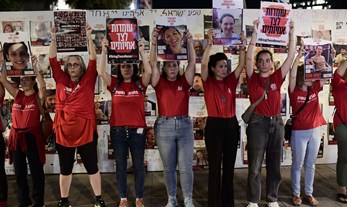
Women in War Under International Law
Written By: Adv. Anat Thon Ashkenazy
Now, when it is clear that Hamas’s murderous attack was unprecedented in its extreme violence, including sexual violence, the relevant international bodies—such as the UN Security Council, UN Women, and the International Red Cross—must respond to these incidents.

Israel's War Cabinet: A Brief History of War Powers and Institutional Ambiguity
Written By: Prof. Amichai Cohen, Prof. Yuval Shany
The Israeli war cabinet and the complex institutional structure related to war informs greatly on Israel’s decision-making.
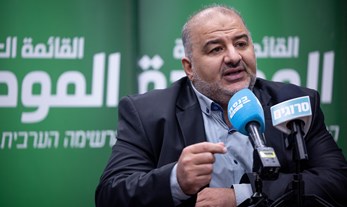
On a tightrope: Israel’s Arab citizens and the War Between Israel and Hamas
Written By: Dr. Arik Rudnitzky
The political mainstream in Arab society identifies with the Palestinian cause, namely the struggle for a two-state solution and peace between Israel and the Palestinians. The vast majority of Arab citizens strongly criticizes Hamas’ practices and completely rejects Hamas’ militant approach to the Israeli-Palestinian conflict.

Israel's Cyber Front Is Unprepared
Written By: Dr. Tehilla Shwartz Altshuler
From network hacking to disinformation, Israel is unprepared for combat in today's fourth dimension of warfare.
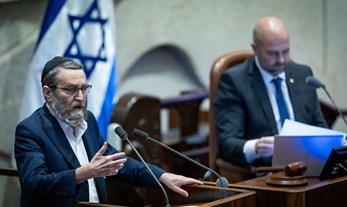
The Gap Between the Haredi Public and Politicians
Written By: Dr. Gilad Malach
The divide between Israel's Haredi (ultra-Orthodox) public and the Haredi establishment and political leadership has never been more striking. Many parts of Haredi society have joined the national war efforts while the Haredi political leadership have acted as if nothing has happened.

Flash Survey: Israelis support immediate negotiations to release the hostages while fighting continues
Written By: Prof. Tamar Hermann, Dr. Or Anabi
A majority of the Jewish public think the government's focus on the judicial overhaul had a critical impact on the timing of Hamas' Oct. 7th attack. Support for negotiations for the release of the hostages in Gaza has risen, but most think the fighting should not stop.

Haredi Enlistment for the Current War with Hamas is a Sign of a New Model of Rabbinic Leadership
Written By: Tehila Gado
The heads of the established traditional Haredi yeshivot have instructed their institutions to continue studies as normal during the current state of emergency, in accordance with the belief in the power of Torah study to protect the people of Israel. By contrast, the messages heard from various other rabbis reflect an understanding of changing needs and offer a blueprint for a new leadership vision.

Israel's Defense Establishment Must Rethink its Conception of Technological Superiority
Written By: Dr. Tehilla Shwartz Altshuler
The paradigm of reliance on technology for our security seems to have led us to a point in which infinite data points and technological tools are at our disposal failed to produce a response. It is of course essential to continue investing in technological superiority, but this needs to be done with a clearer head.

The Path to Victory is Through Silicon Valley
Written By: Dr. Tehilla Shwartz Altshuler
The ongoing war highlights the transformation of technology giants, once American-based corporations, into international entities. Within the Western aid package to Israel, it is imperative to enforce global accountability upon these companies
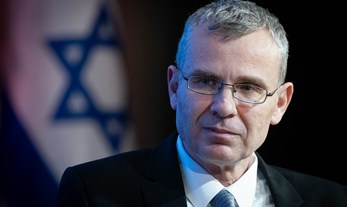
The Justice Minister’s Decision to Convene the Judicial Selection Committee
Written By: Dr. Guy Lurie
On November 5, 2023, Minister of Justice Yariv Levin notified the High Court of Justice that he will convene the Judicial Selection Committee within 15 days. Selecting judges is not possible in such a short time frame, so we will have to wait and see whether this decision leads to the completion of judge appointments to the vacant positions.
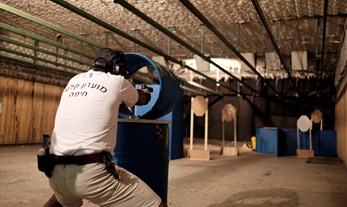
Israel's Irresponsible Expansion of Eligibility for a Handgun License
Written By: Adv. Mirit Lavi
Israel's new firearms regulations now allow hundreds of thousands of citizens to carry handguns, without the necessary checks or oversight. They have been passed too rapidly during the current emergency, without enough thought about the dangerous consequences of dramatically expanding eligibility for a handgun license.
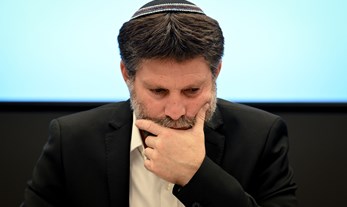
Fighting for our Home: The Economic Front
Written By: Prof. Karnit Flug, Prof. Jacob Frenkel
The ongoing war poses unprecedented challenges—military, civilian, geopolitical, and economic. Our focus is on providing necessary responses to the needs of the military, the needs of those directly affected in combat areas, mitigating the financial damage to businesses and employees, and rebuilding the communities destroyed on October 7.
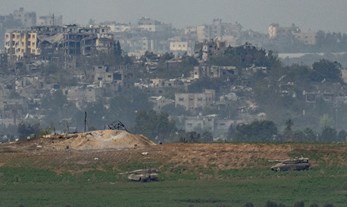
Most Israelis Prefer to Wait Until After the War to Designate Responsibility
Written By: Prof. Tamar Hermann, Dr. Or Anabi
The October 2023 edition of the Israeli Voice Index shows that a significant majority of Jewish Israelis trust the heads of the IDF over PM Netanyahu. If elections were to be held today, a majority of Israelis (55%) would vote for the same bloc they voted for in the last elections.
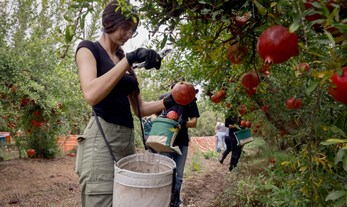
The Link Between Labor Shortages and Israel’s Strategic Security
Written By: Daphna Aviram-Nitzan
The government of Israel must recognize the strategic importance of agriculture, the food sector, and other industries producing goods that are vital for the country’s security and for the continued functioning of the business sector during times of emergency and war

Unpacking Key Assumptions Underlying Legal Analyses of the 2023 Hamas-Israel War
Written By: Prof. Amichai Cohen, Prof. Yuval Shany
The current round of violence between Hamas and Israel has already given rise to many expressions of legal opinion. In this essay, we map some key assumptions and unpack how they can significantly affect ongoing legal debates and deliberations.
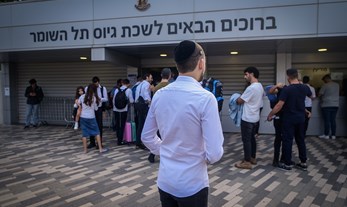
Haredi Enlistment In the IDF – A New Normal?
Written By: Eliyahu Berkovits
A growing number of Haredi men are volunteering for the IDF following the outbreak of the war against Hamas. This trend may signify that the “modern Haredi” phenomenon may be developing into a real movement.
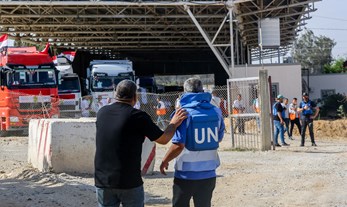
The War on Hamas and International Law
Written By: Prof. Amichai Cohen, Tamar Hostovsky Brandes
International law does not forbid the evacuation of residents to the southern Gaza Strip; on the contrary, it would appear to demand of Israel that it warns residents and encourages them to leave.

Weakening the Civil Service is Part of the Price of the Collapse of the “Perceived Reality”
Written By: Adv. Rita Golstein-Galperin
It is no surprise that the civil service has suffered a severe blow as the current hostilities continue. In light of recent actions aimed at undermining the public sector, immediate action must be taken to address this situation in order to restore social resilience.

The Hamas Abductions and International Law
Written By: Prof. Amichai Cohen
Details and clarifications on the international crimes committed by the Hamas in their abduction of Israeli civilians, and the responsibilities attached to these crimes.

